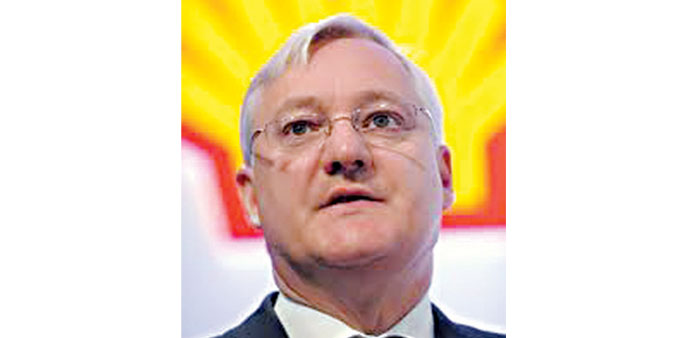Bloomberg/Davos, Switzerland
The US won’t rival Qatar and Australia as the world’s largest liquefied natural gas exporter as it keeps fuel at home to drive an industrial renaissance, Royal Dutch Shell chief executive officer Peter Voser said.
The US may export 50 metric million tons (mmt) a year of LNG by the end of the decade, or about 10% of the projected world market, Voser said yesterday in a Bloomberg TV interview in Davos, Switzerland.
That’s below the 120mmt a year he said is predicted by some forecasters and less than Qatar’s current annual production of 77mmt. Australia is projected to overtake Qatar by the end of the decade.
“Exports will happen,” said Voser, 54, whose company is the world’s largest LNG supplier. “But I hope that the US will actually keep most of the gas back because it will help them to industrialise parts of the US more.”
Drilling gas from shale rock formations has seen prices plunge, offering the world’s largest economy cheaper energy than competitors in Europe and Asia. US export terminals would allow energy companies to profit from price differences between North America, Asia and Europe.
The US Energy Department last month released a study, which promoted LNG exports. The report said even unfettered exports would likely be a net positive for the US, providing as much as $30bn in trade revenue.
Companies led by Cheniere Energy are seeking permission to ship LNG to customers not covered by US free trade agreements, which for example don’t include Japan, the world’s largest consumer of LNG. Shell, which has held exclusive talks to take a stake in the Freeport LNG project, in November said pledges to invest as much as $450bn in US LNG export projects are “a little bit optimistic.”
An LNG export terminal will probably be one of several ways Shell uses North American gas, alongside projects to turn gas into liquid fuel such as diesel to power trucks and ships and feed chemicals plants, Voser
said.
“We are looking at various options at the moment and there is a high possibility that we build our own” terminal, Voser said. “The next 12 months on this are quite crucial.”
Elsewhere in the world, Shell is optimistic about prospects for shale gas production in China and Ukraine. The company signed a production agreement with the eastern European country yesterday.
“In China, it is very encouraging what we find,” Voser said. Shell is exploring for shale gas with China National Petroleum Corporation. “If you just look at the reserves it could outnumber the US”.

Voser: ‘I hope the US will actually keep most of the gas back because it will help them to industrialise parts of the US more.u201d
